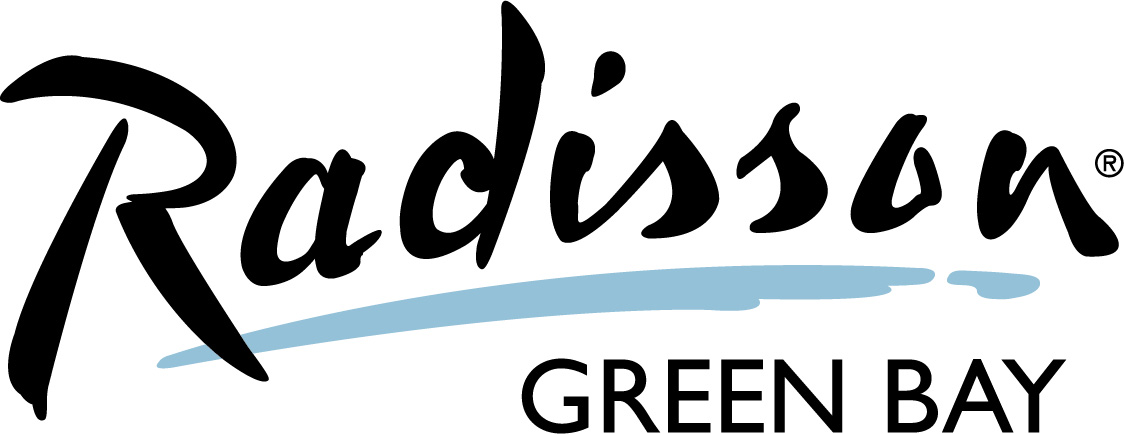Elections & Voting
2023 Tribal General Election
At the January 16, 2023, Annual General Tribal Council (GTC) meeting, the GTC approved the following dates regarding the 2023 General Election:
|
DATE |
TIME |
LOCATION |
PURPOSE |
|
Saturday, April 15, 2023 |
10:00 am |
Norbert Hill Center N7210 Seminary Road Oneida, WI 54155 |
|
|
Friday, April 21, 2023 |
4:30 pm |
Application Deadline |
|
|
Saturday, May 13, 2023 |
7:00 am-7:00 pm |
Turtle School SEOTS |
|
|
Saturday, July 15, 2023 |
7:00 am-7:00 pm |
Turtle School SEOTS |
|
|
Wednesday, August 23, 2023 |
8:30 am |
|
Tentative BC Meeting to Ratify Results |
Have questions, comments, concerns regarding General Election information and process? Please contact the Oneida Election Board at Election_Board@oneidanation.org.
Tribal Elections
Election BasicsThe General Election, and Primary Election (if required), occurs every three (3) years when the Oneida Business Committee is elected. All other elections are Special Elections. Eligible voter may cast a ballot at one of two polling locations at all elections. Picture ID must be presented in order to vote. Applicants must provide the appropriate documentation, including but not limited to, copies of degree(s), official transcripts, and certifications as proof of qualification for the position in which they seek, where applicable. Those applications that do not have the proper back-up documentation regarding qualifications will be deemed as incomplete and applicant will not be eligible for candidacy. |
Election RulesThe Oneida Election Law sets the rules for elections, recounts, and challenges. It also sets the role and responsibilities of the Oneida Election Board. |
Links |
For more informationContact the Oneida Election Board at Election_Board@oneidanation.org |
State, Local, and Federal Elections
Basic Voting Information
In order to vote in Wisconsin you must:
● Be a citizen of the United States
● Be a resident of Wisconsin for at least 28 days
● Be 18 years old
● Proof of identification when voting at a polling place. A Tribal ID is accepted.
● Not have been convicted of treason, felony or bribery, or have had your civil rights restored
● Not have been found by a court to be incapable of understanding the objective of the electoral process
● Not make or benefit from a bet or wage depending on the result of an election
Registration Deadline: 20 days before the election (or completed in the local voter registration office up to 5:00 PM the day before the election, or completed at the polling place on election day)
Click here for more information about voting.
2023 Spring Election

In advance of the April 2023 general election, the Oneida Nation and its conduit fund, Voices For Oneida, invited candidates on the ballot in certain local and state races to share information about themselves and their campaigns with the enrolled members of the Oneida Nation. Below are the responses that we received. Results from the February 21 Spring Primary Election are also below. Winners will face off during the Spring Election on April 4.
Wisconsin Supreme Court
| Janet Protasiewicz ✅ | 446,174 46% |
| Daniel Kelly ✅ | 232,619 24% |
| Jennifer Dorow | 209,822 22% |
| Everett Mitchell | 71,862 7% |
Outagamie County Executive
| Tom Nelson (i) ✅ | 14,471 52% |
| Kevin Sturn ✅ | 8,274 30% |
| Justin Krueger | 4,982 18% |
Green Bay Mayor
| Chad Weininger ✅ | 6,189 47% |
| Eric Genrich (i) ✅ | 6,102 47% |
| Jane Juza | 505 4% |
| Paul Boucher | 279 2% |
Wisconsin Supreme Court
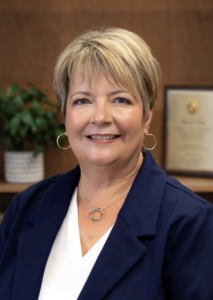 Janet Protasiewicz
Janet Protasiewicz
Why are you running for the Wisconsin Supreme Court?
I am running for the Wisconsin Supreme Court, because I feel it is my duty to serve and I cannot sit back and watch right-wing extremists inject partisanship and political games into our judicial system. Every Wisconsinite deserves a fair and impartial court that follows the law, that’s why I’m running and why I believe I’m the right candidate to bring change to the court. I believe I possess the depth of legal experience, life experience, judgment, judicial demeanor, and values to be a just and effective Justice on the Wisconsin Supreme Court.
What is your approach to deciding cases?
Judges are not meant to be politicians that legislate in favor of their views. Judges should uphold the plain language of laws and the constitution in a just manner. Therefore, I always start with the facts at hand in the case, study the relevant legal precedents, and language of the statutes, laws, and constitutional language being disputed in the case in order to make a fair, impartial, and just decision.
Do you have an overarching judicial philosophy?
My judicial philosophy is that every person deserves to walk into our courtrooms and demand justice, and not feel like the thumb is on the scale against them. For too long, the Wisconsin Supreme Court has put partisanship and politics ahead of common sense and the rule of law; I believe that needs to change. My philosophy is that we should bring common sense back to the court and follow the Constitution of the United States and the State of Wisconsin.
Being a judge involves examining facts, applying the law, and making sure legal protections are observed. Those who interact with the judicial system need to know they are seen, heard, and treated with fairness and respect. A judge must never lose sight of the impact of the legal system on victims, witnesses, law enforcement, and those accused of crimes. All persons before the court deserve respect for their rights, protection of their safety, justice and restitution for harms suffered, and offenders need rehabilitation opportunities to make them better citizens.
What are some of the important issues that you believe might come before the court the next few years?
While I cannot comment on issues that may come before the court, I believe that reproductive healthcare, community safety, and democracy are the most important issues that may come before the Court.
What are your thoughts on the redistricting and abortion law cases in Wisconsin?
Recently, the WI Supreme Court has addressed the issue of redistricting and in doing so it adopted the “least change approach.” The court was not correct in adopting this approach, nor in its final decision. The “least change” approach has no basis in law, the Constitution, or precedent. It was simply adopted in order to give preference to the legislative majority’s political interests. We need a fair and impartial Wisconsin Supreme Court who will uphold our democracy and representative government.
The 2022 SCOTUS decision in Dobbs v. Jackson Women’s Health Organization, which overturned Roe v. Wade, is one of the worst decisions in modern times. This has led to the re-animation of the 1849 Wisconsin abortion ban that is now being challenged by the Attorney General and Governor. As the challenge to the Wisconsin law will be heard before the Wisconsin Supreme Court, I cannot prejudge the merits of that case. I can say that the decision in Dobbs, which took away reproductive rights instead of expanding them, laid a road map for stripping more rights in the future by analogy, and was wrongly decided in my opinion.
What experience or knowledge do you have with laws specific to the rights of Native Americans and Indian tribes?
During my time as a family court judge, I regularly presided over trials involving Native American families where we dealt with the Indian Child Welfare Act (ICWA). As a member of the Wisconsin Supreme Court, I will always work to uphold the law and respect the sovereignty of tribal nations.
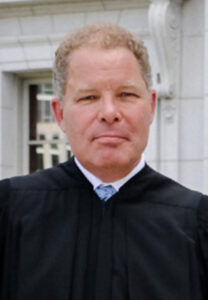 Daniel Kelly
Daniel Kelly
Why are you running for the Wisconsin Supreme Court?
People all over Wisconsin have told me they want the next Supreme Court Justice to have a proven record of constitutional conservatism, and so they asked me to run. At the same time they were encouraging me to run, at least one of the other candidates in the race was promising to reject the constitution in favor of using her personal “values” to decide cases. Because the constitutional order is the basis for the protection of our liberties, I accepted my fellow Wisconsinites’ kind invitation so that we may prevent activists from threatening our inherent right to “life, liberty, and the pursuit of happiness.”
What is your approach to deciding cases?
Deciding cases is about the accurate and faithful application of the law, and only the law, to the questions before the court. The process begins with identifying the applicable legal premises (e.g., constitutions, statutes, regulations, common law). The next step is to use rigorous logic to reason from those premises all the way through to the conclusion. One should then be able to look back and see an unbroken chain of logic connecting the premises (the law) to the conclusion (the court’s judgment). If the chain of logic has no breaks, then the people of Wisconsin can be confident that the conclusion is entirely the product of the law’s command.
Do you have an overarching judicial philosophy?
Yes — it is an unwavering fidelity to the constitution, the rule of law, and the impartiality of the judiciary, oftentimes referred to as “constitutional conservatism.” Conserving the original public meaning of our constitutions as they have been written and amended by the people, combined with the methodology described in my answer above, guarantees that the peoples’ representatives in the legislature will make the laws of the state, their governor will execute the law, and the courts will respect the limited role assigned to them by the constitution: Deciding cases according to the laws that already exist.
What are some of the important issues that you believe might come before the court the next few years?
Activist candidates for the Supreme Court have been overtly inviting lawsuits on specific issues by publicly discussing what they want the court to address. This is part of their disrespect for the rule of law and our constitution. A proper jurist does not speculate on such matters because the relative importance of issues only arises when deciding requests such as a petition for review or a petition for original action.
What are your thoughts on the redistricting and abortion law cases in Wisconsin?
I think they should be decided just like all other cases that come before the Wisconsin Supreme Court: According to the law.
What experience or knowledge do you have with laws specific to the rights of Native Americans and Indian tribes?
While on the Supreme Court, I had the distinct honor of serving as liaison between the state and tribal court systems. During that time, we were able to productively address several issues in which tribal judges had a particular interest, including:
- Developing judicial education opportunities for tribal judges;
- Accessing domestic violence training sessions;
- Exploring the possibility of extending CCAP and WCCA to the tribal courts;
- Addressing issues involved in the state’s recognition of tribal court orders; and
- Ensuring all circuit court judges had ready access to ICWA contact information.
Green Bay Mayor
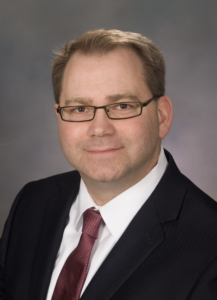 Chad Weininger
Chad Weininger
Why are you running for office?
As a father of four young children, I’m concerned about the future of our city, and I want to ensure our children and their children have the same – if not better – opportunities we had growing up. I believe the path we are on is unsustainable. Our roads and infrastructure are crumbling, taxes are too high, our neighborhoods are less safe, and City Hall lacks a comprehensive vision for our economic future. I want to ensure that Green Bay remains a place where families can get a good job, afford to live, work, and raise children.
What unique expertise or experiences would you bring to this office?
I have a proven track record of bringing people together to tackle tough issues. As Brown County Director of Administration, I led the efforts to purchase the WPS Pulliam Plant for redevelopment and oversaw the creation of the County Papermaking Corridor, which allowed the $500 million Green Bay Packaging expansion. As a state lawmaker, I authored legislation that facilitated major development initiatives in Green Bay, including the Hotel Northland and redevelopment on Broadway.
What is the most important issue in this election and how would you address it?
Ensuring families have safe neighborhoods and economic opportunities. I will be a visible leader who will work directly with neighborhoods to enhance safety. I’ll champion development in Green Bay by building an environment to attract investment into our industrial parks, downtown and main street corridors throughout the city. This will build density that will support businesses other communities have achieved – we can, too, if we become more progressive in our development efforts.
What challenges do you see coming down the road for local government in the next decade?
Green Bay needs redevelopment to offset the historically high tax increase we’ve seen these past four years. Massive tax increases, new fees, and tax shifts are making housing affordability unsustainable from many seniors, renters and homeowners in Green Bay. We also must address our crumbling roads. Delaying that any longer will only increase costs in the future.
What is a new idea you have for making local government more efficient?
I’ve championed regional consolidations like Brown County’s Regional Medical Examiner’s office to eliminate waste and make government more efficient. I’ll continue to build upon this success to provide better service while saving money for those families who just lost a loved one.
If elected, how can you as an elected official of the city of Green Bay and the Oneida Nation work together to better all residents in the region?
Like any good relationship, there needs to be trust, communication and commitment. I’m committed to working to make our community a better place for all who call it home. I will be honest and willing to have difficult conversations, as I have demonstrated in the past while working on the Oneida service agreements with the County. I’ll also continue to communicate and consult with Oneida on issues that affect our communities and our relationship.
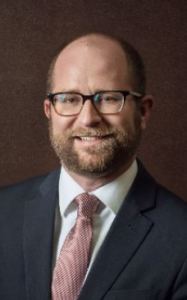 Eric Genrich
Eric Genrich
Why are you running for office?
I’m running for a second term because I believe we have more to accomplish to keep moving our community forward. Green Bay is an incredible city where we take care of one another and invest in a future that works for everyone. I’ve done my best to model those instincts during my tenure, putting community progress above petty politics.
What unique expertise or experiences would you bring to this office?
I was born and raised in Green Bay. After graduating from high school, I received a BA from UW-Madison and attained a graduate degree from UW-Milwaukee. Since being elected mayor, I’ve pursued a number of professional development opportunities, including attending the Mayor’s Institute for City Design in the summer of 2019 and the Bloomberg-Harvard City Leadership Initiative in the fall of 2021.
Prior to becoming Mayor, I served three terms in the Wisconsin State Assembly, representing the 90th Assembly District, which comprises the majority of the City of Green Bay.
My wife, Emily, is a public school teacher. She and I live on the east side of Green Bay with our two children, Henry and Amelia.
What is the most important issue in this election and how would you address it?
Despite all the work that’s been done to replace and repair our aging infrastructure (over 22 miles of roads resurfaced or reconstructed and $20 million invested) we know we have more to do. Like every municipality in the state, we are overly reliant on property tax revenue and under-supported by our state government. Brown County generates approximately $30 million per year in a half-cent sales tax but does not share that revenue with municipalities. As a result, we are bearing a heavy burden in order to take care of our needs, but we are continuing to get the job done.
What challenges do you see coming down the road for local government in the next decade?
The state’s funding formula for local government is broken. As Wisconsin municipalities, we’re too reliant on property taxes. With rising costs and growing needs, like public safety and infrastructure, we are in desperate need of creative and constructive thinking at the state level. I’m encouraged by recent news coming out of Madison on this subject, and I’ll continue to be actively engaged in the effort to make these reforms a reality.
What is a new idea you have for making local government more efficient?
The Common Council and I always direct a critical eye to the city’s budget. We’ve asked city employees to do more with less for years, and we’ve looked for and adopted efficiencies wherever possible. We’re looking to enhance this work through the adoption of what’s known as Priority-Based Budgeting, which will more effectively allow me and my senior staff, as well as Council members and residents, to compare our spending with our strategic priorities and make difficult decisions.
If elected, how can you as an elected official of the city of Green Bay and the Oneida Nation work together to better all residents in the region?
There’s so much that we can do if we continue to work together. I’m immensely proud of the Cooperative Governance Agreement that was ratified by our Common Council and the Oneida Business Committee. The Oneida Nation is sovereign; the nation’s treaty rights are to be honored and upheld by all who swear an oath to the U.S. Constitution. I remain committed to strengthening the bonds of mutual respect and admiration that have been formed over these past four years. It would be my honor to work to deepen this connection further in the years ahead.
Outagamie County Executive
 Thomas Nelson
Thomas Nelson
Why are you running for office?
The county needs a steady, experienced hand. My record speaks for itself: declining tax rates, fully funded services, AAA bond rating. We have major projects coming up like the airport expansion, which contributes over $700 million a year in economic activity (including Oneida!) and supports over 2,500 jobs. We have key initiatives in the works to attract/retain top talent so we can continue to deliver top-notch services.
What unique expertise or experience would you bring to this office?
I’ve been county executive for twelve years and served in the state Assembly for six years; my Assembly district covered the entire reservation. (You may have remembered me knocking on your door a time or two.)
My experience and track record are unparalleled in this race, as is my ability to work across the aisle and bring those with competing ideas and perhaps contradictory interests to the table to hash out solutions that benefit all concerned.
The proof is in the pudding.
All my budgets have been adopted on a unanimous vote or a solid majority vote by the board. I’ve hired top-notch staff that take great pride in their work and deliver for us every day.
What is the most important issue in this election and how would you address it?
The most important issue in the campaign is convincing the voter which candidate is best positioned to maintain and build on our strong record of accomplishment. That’s us.
I led our county through tumultuous and uncertain times, like the COVID epidemic. (We had no better partner in this effort than the Oneida – THANK YOU!). Outagamie County is one of the best-run counties in the state; our credit rating and service record proves it. I’ve helped build our airport into an economic powerhouse. And any number of accomplishments listed in this survey.
What challenges do you see coming down the road for local governments in the next decade?
Local government has a once-in-a-generation opportunity to overhaul the shared revenue system and increase state aids. The legislature and governor are resolved to improve the system so that local government units – including tribes – benefit. I have the experience and the relationships to realize this opportunity. It’s no time for the second stringers. Send in the starter.
What is a new idea you have for making local government more efficient?
Capture additional state aid, pay our employees a fair wage. Morale has been sapped, and inflation has hit family budgets hard. I’m certain all of you can relate. Just as I hope your employer gives you honest pay for honest work, we at Outagamie County need the additional funds to do better for our workers. This will translate into a happy workforce and a more effective workforce.
Also, refresh partnerships with local governments. Consolidate services where it makes sense. A strong culture of working together in Outagamie County and northeast Wisconsin has enabled all of us to benefit.
If elected, how can you as an elected official of Outagamie County and the Oneida Nation work together to better all residents of the region?
The Oneida and I have had a solid partnership and friendship for the last 20 years, working together and accomplishing big things, be it road projects, health and human services, implementation of ICWR or tourism. My door is wide open to take on any and all projects – never hesitate to walk through and share your ideas.
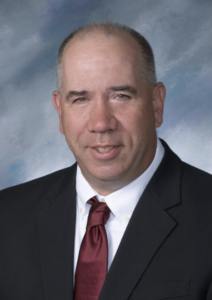 Kevin Sturn
Kevin Sturn
Why are you running for office?
I am running for Outagamie County Executive to serve the people in this community. I’m not a politician, and I won’t be seeking higher office. It is time for a change in leadership. My endorsement list is a testament to my ability to build strong relationships and inspire confidence in my ability to get things done. The people who have endorsed me are a bipartisan coalition of county and community leaders, past and present, who believe I can bring positive change to the county through hard work, integrity and leadership by example.
What unique expertise or experience would you bring to this office?
I have both private and public sector experience, as well as a firm understanding of the needs of the rural and urban communities within our county. Prior to farming full time with my brother on our family farm in the Town of Dale, I was an operations manager at an Appleton company. I served on the Outagamie County Board for eight years. I served the first four years as a member of the Finance Committee and then was elected to Chair the Finance Committee for my final four years. I understand balancing limited resources to efficiently provide critical services.
What is the most important issue in this election and how would you address it?
Public safety is a top priority for residents, school districts and businesses. People want to live and work in a safe community. I intend to improve public safety by cooperating and collaborating with the Sheriff’s department and the Health and Human Services department. Together we’ll work to protect children, veterans, seniors and those in need of mental health services, such as expanding our Behavioral Health program to de-escalate difficult situations. To improve these services, I will focus on staffing and technology. I will also initiate and encourage communication and cooperation between departments, municipalities, neighboring counties, community groups and businesses.
What challenges do you see coming down the road for local governments in the next decade?
Serving the needs of a growing and diverse community. This requires investment in the retention and recruitment of quality employees and technology that will enable them to do their jobs effectively. This also includes a recognition that the needs in our rural areas are different from those of our urban municipalities. For example, the need for high-speed broadband in rural areas for education and business. We need to focus on regional planning and cooperation for future success.
What is a new idea you have for making local government more efficient?
Residents, businesses, and community groups should expect quality services at a reasonable cost. We need to increase efficiency within departments by investing and implementing new technology. To achieve this goal, staff is going to have to try doing some things differently. When goals are met, employees deserve a leader who will recognize their achievements. When things don’t go quite as planned, employees need a leader who will work with them to solve problems.
If elected, how can you as an elected official of Outagamie County and the Oneida Nation work together to better all residents of the region?
I believe in intergovernmental cooperation and communication. It is important to coordinate our services to serve the joint interests of our community, while respecting your nation’s sovereignty. I believe our departments with mutual interests, such as Land Conservation department, Health and Human Services department, and Sheriff’s department can work together to mutually benefit the Oneida Nation and Outagamie County. In this era of limited funding, it is important to work with our neighbors to find more efficient and creative ways to provide services to our residents. I look forward to working with the Oneida Nation.
Village of Hobart Board:
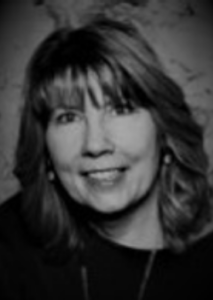 Donna Severson
Donna Severson
Why are you running for Hobart Village Board?
I’m running because Hobart is my home and I want to play a part in moving our community forward with a strong foundation, building on our successes while positioning us to meet the challenges ahead and best secure the future for residents and the Village.
What is the most important issue in this election and how would you address it?
Village residents deserve full participation and representation from all of their elected officials, yet they have been underrepresented for years. The public record shows that over the past four years one of the incumbent Trustees running for re-election has attended fewer than half of the scheduled Village Board meetings — either in person or via telephone. His attendance record for closed session discussions, where some of the most critical issues are discussed, is even lower because by Village ordinance nobody is allowed to participate in a closed session via telephone. This election provides an opportunity to restore full representation.
What challenges do you see coming down the road for local governments or the Village of Hobart specifically?
Budgeting is always a challenge. In the past the Village has been able to pay for road maintenance in cash, but it stopped adequately funding its Capital Improvement “Catch-Up” Plan in 2016 — a plan intended to get us back on track fixing roads rated as the most in need. Village Administration has now advised that future road projects will require bonding, but bonding for ongoing, predictable and calculable expenditures like road maintenance is not a better strategy than following a sound Capital Improvement Plan. Bonding can make sense (e.g., new fire station) but going into debt to keep up with maintenance isn’t a good strategy. It strangles future budgets. Proper planning, prioritizing and “paying it forward” is always better than kicking the can down the road. The Village must budget like we do in our individual households. It also deserves mentioning that bonding for capital projects falls outside of the tax levy limit so it creates an opportunity to raise future taxes more than otherwise would be allowed.
How can you, as an elected official of the Village of Hobart, and the Oneida Nation work together to better all residents of the region?
I am very excited about the opportunity for collaboration between Brown County, the Village of Hobart and the Oneida Tribe on the completion of the Duck Creek Trail that runs through Hobart. This project has its challenges, but it is an example of how we can all work together on a project that positively impacts all of us. I hope in the future this project will open the door to other areas of collaboration.
Do you as a candidate for public office acknowledge the Oneida Nation as a sovereign American government; and what is your position on federally recognized American Indian Tribes purchasing land and placing it into trust status?
Regarding sovereignty, first and foremost I acknowledge the ultimate sovereignty of Almighty God. His throne is in heaven and the earth is His footstool (Acts 7:49-50). For the Oneida Tribe’s sovereign status, I refer to the U.S. government, which officially recognizes 574 Indian tribes. The Oneida Tribe is recognized as eligible for funding and services from the Bureau of Indian Affairs. While I acknowledge that the Oneida Tribe has been granted the opportunity to apply for land to be placed into trust status, my position as a candidate for public office is that without full, adequate, and perpetual compensation for Hobart services I will oppose any applications that move property off the tax rolls.
Jody Hakes
Why are you running for Hobart Village Board?
I am running for Hobart Village President as I feel the Village could benefit from a fresh, positive perspective. I believe our leaders should always be willing to engage residents and neighboring governments with respect and dignity, even when conversations become difficult. Our communities will not prosper without those leading us willing to respect one another.
What is the most important issue in this election and how would you address it?
I believe an important issue is services and infrastructure. The village needs to be proactive in maintaining infrastructure to extend useful life and to reduce accelerated deterioration. I believe continually pushing projects down the road isn’t the best course of action; the costs simply rise, and its useful life is most often greatly reduced.
What challenges do you see coming down the road for local governments or the Village of Hobart specifically?
An important challenge is maintaining a healthy village operating budget while providing needed services that all of its citizens come to expect and deserve.
How can you, as an elected official of the Village of Hobart, and the Oneida Nation work together to better all residents of the region?
We, as leaders coming from different perspectives, can and should always have conversations. We need to have these conversations with respect and dignity, and we need to find compromise for the mutual benefit of us all as a community.
Do you as a candidate for public office acknowledge the Oneida Nation as a sovereign American government?
Certainly, as it is spelled out by federal law.
What is your position on federally recognized American Indian Tribes purchasing land and placing it into trust status?
This is a very complicated issue at the very least which needs more study.




